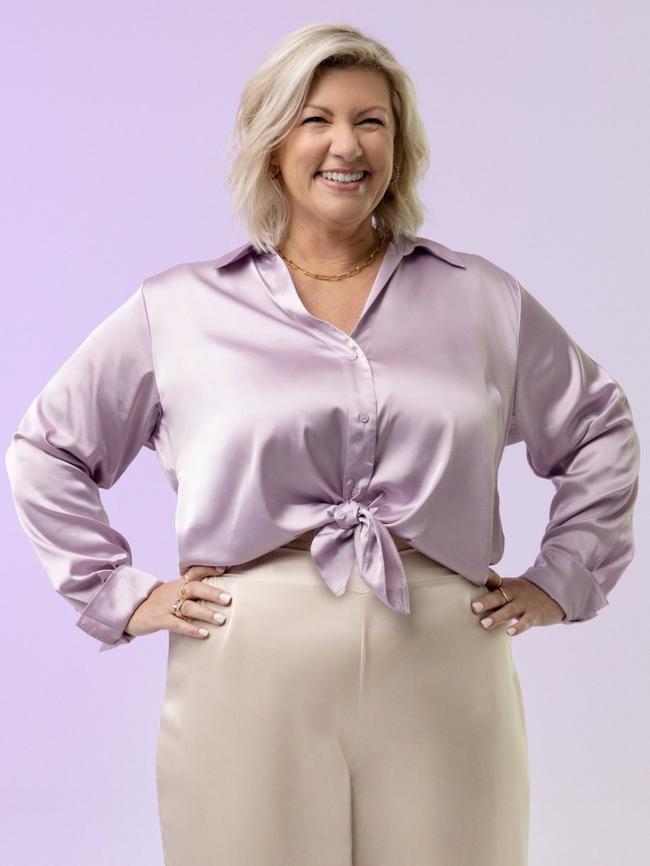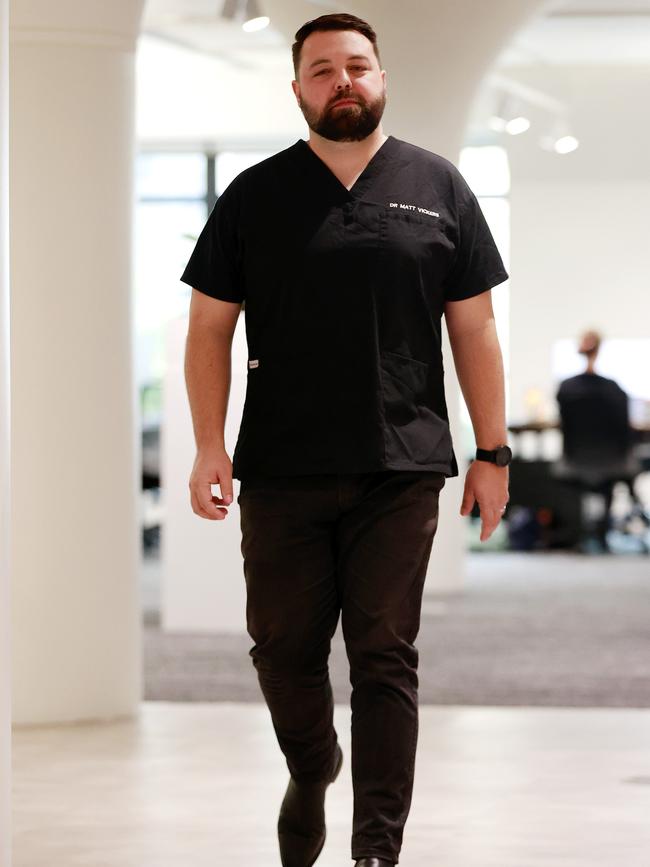Ozempic shame: Why there’s still a stigma around weight loss ‘wonder drug’
A Sydney mother has spoken out about her use of Ozempic, and why some patients feel shame when using the weight loss ‘wonder drug’.

NSW
Don't miss out on the headlines from NSW. Followed categories will be added to My News.
Sydney mum Tiffani Young understands why people are ashamed to admit they are injecting themselves with Ozempic.
The fat shaming she’s felt as an overweight person, coupled with the bad press about robbing diabetics of their “wonder drug” is enough to send anyone who emotionally eats into the corner with their block of chocolate.
Add to that the headlines about shrinking celebrities “admitting or denying” they are on the drug and seemingly offended by suggestions they “did it the easy way” or their “hard work” has gone unnoticed, and you have all the ingredients for everyday people like Ms Young to retreat and stay mum on the topic.
This Sydney mum however has found the courage to speak up, to admit to the world through advertising campaigns that she is jabbing herself with Ozempic.
She’s also here to tell the world it’s no “easy fix” or overnight fat buster - she’s managed to lose between half a kilogram to one kilogram per week on average.


And that’s with exercise and some hard choices about the food she consumes and opts against.
“People who haven’t done their research think it’s a magic injection, which means not having to change anything or take responsibility for yourself and that’s not true at all,” says the mother of five who has lost 20kg and has “another 20 to go”.
“A lot of my progress has been very slow and steady, with some weeks where my weight plateaus, but I tell myself that means the weight will stay off long term,” she said.
She’s had a stint of four months off the medication, put weight back on, then took it back off again.

Hurdles in her private life saw her put on 30kg in six months, comfort eating the wrong foods to cope with stress, then another 10kg she credits to Covid.
“I already had shame about how I put on the weight in the first place and when I saw doctors for help I wasn’t finding that the environment was very supportive,” she said.
“The weight loss has been slow so it’s been scary to put myself out there publicly because I feel like people expect to see a skinny minnie but that’s not the case.
“I too hid that I was on it for a while then decided, okay if I can help one other person. I’ve had a few people who knew me contact me and say good on you, you look great and some texts from people taking selfies with the bus they see my picture on,” she jokes.
Ms Young said she was “close to hitting the cusp of morbidly obese” when she made the decision to take Ozempic, with the help of doctors from Juniper health.
She said she experienced judgement from people close to her, some raising their eyebrows and telling her the drug causes cancer.
“The doctors warned me of the risks and like most people I did my research, listened to the experts, had all the tests and the proper follow ups.”

Like many people who struggle with their weight over a long period of time - Ms Young had tried everything by the time she went down the Ozempic path.
“By the time you try an injection you’re fairly desperate already carrying shame, and there’s that community perception that the drug should be left for people with diabetes and that famous people are taking it for a quick shed to fit into a dress, but I was at the point my health was at risk and I believe most people who decide to do it are at that point.”
Every star in Australia and all the way to Tinseltown who has shed a few kilos in the last couple of years has been “accused” of taking the drug.
Jackie O’s holiday snaps from Balai that she posted on her Instagram page have attracted a lot of attention, with many people accusing her of taking the appetite suppressant drug intended for adults with type 2 diabetes.
“Wow Ozempic is a miracle,” one person wrote, while another added, “I love Jackie but she has to be taking Ozempic!”.
She maintains she lost weight “the hard way” - no short cut through 2023.

For people like Ms Young, and Sydney GP Matt Vickers - who not only prescribed the drug but himself is using it - the term “short cut” sends the wrong message.
The Hills star Heidi Montag took a dig at people who use Ozempic after revealing in December that she had lost 22 pounds.
“There’s no shortcuts in life. And if you’re taking that shortcut, I don’t know,” she told Page Six of other celebrities using the drug. “I don’t want to name names or get into it, it’s just nothing I would ever do.”
Heidi noted, “I want something that is sustainable. I want something that does also require hard work.”


Khloe Kardashian hit back at commentators on Instagram who speculated about her use of the drug.
“Let’s not discredit my years of working out,” Kardashian wrote on a January 2023 post. “I get up 5 days a week at 6am to train. Please stop with your assumptions.”
The Real Housewives of Beverly Hills star Kyle Richards got real about claims that she was taking the medication after her followers on social media took notice of her weight loss earlier this year.
Richards wrote back to one user on Instagram: “I am NOT on ozempic.” In another response, Richards added, “Never have been.”



While other drugless weight loss programs were reluctant to weigh into the discussion, facebook groups show many Ozempic users also turn to companies that provide meals or meal plans to complement their injections.
Users also are constantly worried about the shortage of the drug - with debate raging about the compound products now being produced as Ozempic stocks dwindle.
Dr Vicker said Ozempic was expected to be in short supply until at least December.
He disagrees that compounding pharmacies selling their own versions of semaglutide, the active ingredient in Ozempic, and tirzepatide, the active ingredient in Mounjaro, were not safe options.
Compounding medicines is intended to help pharmacists give individual patients access to medication that is in shortage or is not available in a suitable form, and is exempt from normal regulatory approval processes.
The compound version is $375 a month which includes doctor consultations, unlimited follow-ups and health and diet support - about $100 more than a month’s supply of Ozempic through Juniper.
Dr Vicker said people shouldn’t be embarrassed about wanting to better their quality of life and patients like Ms Young, who had done it “the hard way” with the aid of Ozempic, helped break down the stigma.
Got a news tip? Email weekendtele@news.com.au




